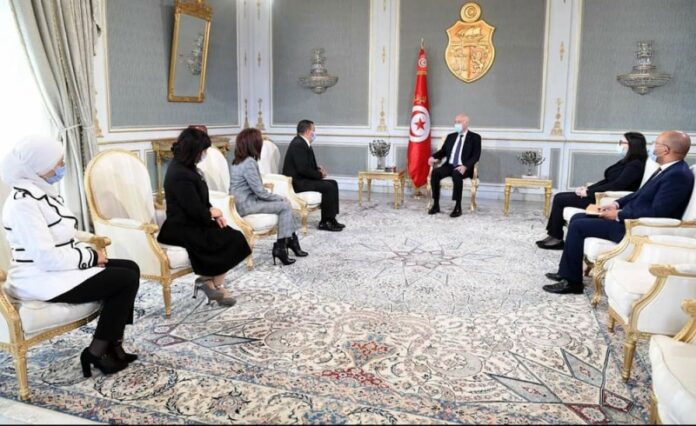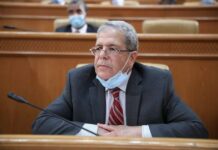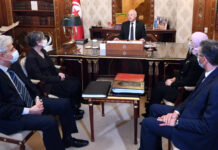The Diplomatic Corps Syndicate calls on the Tunisian president to intervene immediately to stop “serious abuses” that occurred in the Ministry of Foreign Affairs.
A Step that Opens the Door to Escalation Again
The appointments controversy returned to the corridors of the Tunisian Ministry of Foreign Affairs, following the denunciation of the Syndicate of the Diplomatic Corps of appointments that did not respond to the agreed conditions and standards, and in a step that would confuse the ministry’s recent successes in the Corona file, as Tunisian diplomacy was able to mobilize the international community to provide urgent health aid.
The Union of the Diplomatic Corps said Saturday in a statement that serious violations occurred in the Ministry of Foreign Affairs, so President Kais Saied must intervene immediately to stop them.
The union expressed its rejection of the appointments, which it said had been approved in the structures and centers of the Ministry of Foreign Affairs without responding to the agreed-upon criteria, in a move that opens the door to a new escalation in this file.
The union warned that “these decisions will have negative repercussions on the work environment in the ministry and on public opinion in this delicate circumstance.”
The union also called on President Saied to intervene immediately and urgently to put an end to what it considered serious violations registered in the Ministry of Foreign Affairs, pointing out that these abuses are documented by its executive office, and it will seek to set a date for a meeting with the presidency to reveal all the facts.
It denounced what it considered to be the oversight of the Ministry of Foreign Affairs’ supervisory authority in the policy of deliberate exclusion and marginalization of the union party and its failure to engage and negotiate with it regarding decisions that concern diplomatic corps employees.
The protest of the Diplomatic Corps Syndicate comes at a time when the ministry is making efforts to motivate the international community to provide urgent aid in the midst of the worst health crisis afflicting the country.
In the opinion of the observers, the timing of this escalation does not seem appropriate, nor does it fit with the deteriorating health, political and economic situation, and this new escalation would embarrass President Saied, who demands an immediate encirclement of the ministry’s differences and unification of its ranks.
Saied had previously tried to reassure the Diplomatic Corps Syndicate by stressing that “the criteria of competence, professionalism and objectivity are the determining factor in appointments abroad and in the nominations and promotions in the central administration,” noting “the need to ensure the neutrality of this facility and to distance it from all interactions and attempts to interfere and influence.”
Saied wants to placate the union in order to avoid a state of confusion in diplomacy, which would affect its tasks and the country’s image abroad.
The diplomatic positions had sparked controversy in the country after the Diplomatic Corps Syndicate rejected appointments from outside the Ministry of Foreign Affairs, in a move that would deprive the ministry of competencies and expertise from other fields and limit opportunities to diversify diplomatic representation, according to the conclusions of the observers.
BM jdd











